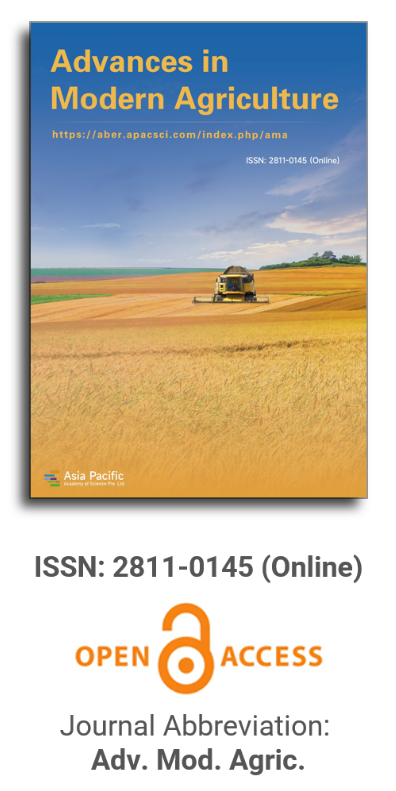


Intelligent fertigation, pillar of sustainable agriculture
Vol 4, Issue 1, 2023
VIEWS - 3831 (Abstract)
Download PDF
Abstract
The growing demand for food in the country has required an increase in agricultural production levels and, with it, an increase in irrigation systems. Among the most widespread are central pivot irrigation systems, but their large number and variety make their optimal configuration difficult, generating overexploitation of natural resources such as water and threatening the sustainability of agriculture and the country. For this reason, the objective of this research was to implement software that would allow obtaining the appropriate configuration of this equipment using information on the type of crop, the agro-climatic conditions of the region, and the soil in order to obtain maximum utilization. As a result, an application capable of performing the calculations so that the value of water delivered by the system is closer to the estimated needs for a crop in each of its phases was achieved. To demonstrate this, an experimental study was carried out in field conditions in the agricultural enterprise La Cuba in Ciego de Avila; it showed that, with the use of the software, there was a saving of up to 94.5% of the water previously misused. In addition, the level of liquid provided allows the sowing to be in better conditions to reach its optimum yield. As an added value, the software has a minimalist and intuitive interface, which allows real-time visualization of field information.
Keywords
References
Refbacks
- There are currently no refbacks.
Copyright (c) 2023 Enrique Almeida Maldonado, Lorenzo Eddy Camejo Barreiro, Cosme E. Santiesteban Toca

This work is licensed under a Creative Commons Attribution 4.0 International License.

This site is licensed under a Creative Commons Attribution 4.0 International License (CC BY 4.0).

Prof. Zhengjun Qiu
Zhejiang University, China

Cheng Sun
Academician of World Academy of Productivity Science; Executive Chairman, World Confederation of Productivity Science China Chapter, China
Indexing & Archiving
In the realm of modern agriculture, the integration of cutting-edge technologies is revolutionizing the way we approach sustainable farming practices. A recent study published in Advances in Modern Agriculture titled "Classification of cotton water stress using convolutional neural networks and UAV-based RGB imagery" has garnered significant attention for its innovative approach to precision irrigation management. Conducted by researchers from Institute of Data Science and the AgriLife Research and Extension Center of Texas A&M University (authors's information is below). This study introduces a novel method for classifying cotton water stress using unmanned aerial vehicles (UAVs) and convolutional neural networks (CNNs), offering a powerful solution for optimizing water use in agriculture.
Modern agricultural technology is evolving rapidly, with scientists collaborating with leading agricultural enterprises to develop intelligent management practices. These practices utilize advanced systems that provide tailored fertilization and treatment options for large-scale land management.
This journal values human initiative and intelligence, and the employment of AI technologies to write papers that replace the human mind is expressly prohibited. When there is a suspicious submission that uses AI tools to quickly piece together and generate research results, the editorial board of the journal will reject the article, and all journals under the publisher's umbrella will prohibit all authors from submitting their articles.
Readers and authors are asked to exercise caution and strictly adhere to the journal's policy regarding the usage of Artificial Intelligence Generated Content (AIGC) tools.
Asia Pacific Academy of Science Pte. Ltd. (APACSCI) specializes in international journal publishing. APACSCI adopts the open access publishing model and provides an important communication bridge for academic groups whose interest fields include engineering, technology, medicine, computer, mathematics, agriculture and forestry, and environment.



.jpg)
.jpg)

.jpg)
